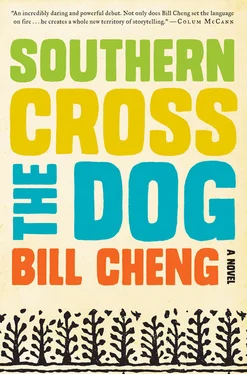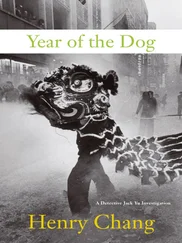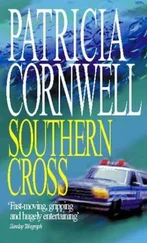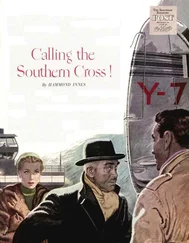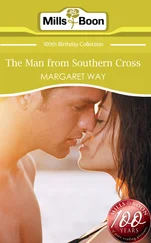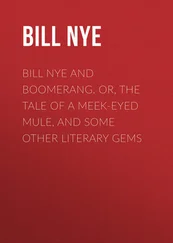She charged her rifle and steadied the stock against her shoulder.
Without a word, Rowbear rose and took off down the hill. Something caught his foot and he fell forward into the shallows. The bull snorted. Its eyes were large and bloodshot. They stared back at him through a rim of mucus. There was a crack and the bull knelt down. Rowbear fell backward. There was blood on his face and clothes. He felt himself. He was not hurt. He looked up the loess, at Frankie, at the ribbon of smoke. The bull tried to rise, but its legs would not hold. The beast trembled and fell again. Rowbear rose to his height and brought up his arms. There was another shot and the bull lay down on its side, shaking its flank. The beast heaved in the air, its tongue wagging against the mud. Crack! and something in its shoulder popped. It was done.
THEY LOST HOURS AS FRANKIE dressed the kill and cut the meat into steaks. She slit its throat and the blood drained out into the shallow wade-through. Her arms and clothes and hair were slick and red, and what she couldn’t wash off in the brackish water was streaked crimson, her neck and cheek and face. Rowbear did not speak. He sat on a log and watched the bull carcass, silent, the chill of the water on his skin.
Come, she called out to him. Let me wash there blood off you.
He didn’t move. His silence wounded her. It wasn’t spiteful or angry. There was a care in it, a sadness. Some part of him seemed to have been closed away, a door slammed inexplicably shut. And this enraged Frankie.
The sun was going down, and to Frankie, he seemed to drink the light into himself, darkening into pitch. He did not look at her and she wondered if she could bear the gaze. They could not make it to the Flats in this darkness so Frankie pitched camp on the high ridge overlooking the kettle pond. She sent Rowbear to gather kindling. When he returned, she dug out a fire pit, laying down a bed of dry grass and rimming the pit with stones. By nightfall, she’d built two rolls out of moss and soft duff under the shelter of a fallen tree. They sat by the fire, eyes tearing from the smoke. She unpacked one of the steaks and cooked it over the flame. When it was ready, she recited the trapper’s prayer and they ate.
She watched him, his eyes distant, taking slow measured bites of his supper. Supper she had tracked and killed and slaughtered. Supper that he hated her for. She wanted to spit in his face, to tear the food from his hands. He was dangerous and reckless. When he dove into the river. When he ran toward the bull. He wanted to die. She saw this now. His hand hung limp on his knee. His lips barely moved.
She fed the fire with the rest of the kindling, then pushed past Rowbear to her bedroll. The ground was cold and hard, and she turned her head from the firelight. She shut her eyes and didn’t move and, though her mind couldn’t settle, pretended to sleep.
Her anger was a small sharp blade and she honed it, waiting for sleep. It was some time before Rowbear tore himself from the fire to bed down beside her. Even near the flames, his teeth chattered. He coughed and sneezed and sniffled. It felt like hours, yawning deep into the black morning. She watched shadows dance on the bark, listened to a chorus of frogs pulsing in the pond below. She thought of owls. Tried to count them in the forest of her mind, sweeping the cold air above her. Eight for safe travel. Nine for illness. Black for life. White for death. Down she went through the hole, Rowbear’s moaning in her ears whorling into that country of sleep and notsleep. Electric light flashed in the ether. Down and down. She was alone. The valley was flat and treeless, extending toward no horizon. She could see her breath in front of her. Her hands. A wave of loneliness washed over her. Above, the heavens stormed, rolling dust and sand and stone into their folds.
She awoke. Rowbear was crouched above her, his hand clamped over her mouth.
Shhh…
His face was pale, and his lips were chapped. It did not look like he had slept. She took his palm from her mouth.
What, what is it? she asked.
Something. I heard something.
Rowbear took her to an outcrop of sandy ground. He pointed out into the darkness. She could hear it now too, down in the kettle. How many were there? Four? Five? Growling and yipping and snarling. Carolinas maybe. Or coydogs. They must’ve gotten buffed at the run and doubled back here when they could not find the bull. She leaned toward the drop and peered down. They were there with the carcass, blood mad and cheated of their prey. They fought for bone and cartilage and scraps. Carolinas were worthless but she could fetch eight dollars for coy hide at Fort Muskethead. She unscrewed her canteen and took a deep swallow. Then she took up her rifle and checked the chamber.
Stay here, she said.
Where you going?
Keep to the fire, you be safe, she said.
She walked the slow drop down into the kettle. The underduff crackled in her ears, but there was no helping that. She took up a clump of dung and smeared it on her coat. The trigger was slick now, and she wedged her finger hard against the guard. Her eyes started to adjust. She could see shapes, forms, edges. Down at the waterline, she spotted the bull carcass, its long brackets of bone emerging from the muck. The dogs leaped at each other, tugging at the thin strips of sinew.
She steadied her rifle.
They were four, the largest near eighty pounds by her reckoning. The lead dog pushed past the other three, the muscles of its stomach pulsing. Its ribs showed through its girth. It’d found a hole in the bull’s side and pushed deep into it, pulling strings of gristle. The sky began to lighten. She sighted down the barrel and aimed at the soft hackles of the lead’s neck. She levered the hammer back and drew in a breath.
The dogs stopped. The sun crowned up from the east, blazing copper through the shrub and grass. They turned toward it, noses against the breeze. She looked too. Rowbear stood atop the ridge, his shirt open, his cheeks still flecked with dried blood. There was a stillness in his face, his eyes half open. They’d smelled him.
For a moment nothing moved.
Then the pack took up the hill, toward Rowbear. Frankie found her hands again. Her finger had turned to stone on the trigger. She pulled and the shot disappeared.
They advanced quickly, their paws kicking up flecks of soft mud. Rowbear kicked one square in the head and sent it down the rise. He threw mud and thrashed the air, brandishing a rock in his hand. Frankie fired again, and again nothing. Just smoke and noise. She cursed and got to her feet and began to run across the kettle. Rowbear tried to keep the dogs at a distance, but they held their ground. Frankie fired once more, and one of the dogs fell down. Another two took off running, but one remained, too crazed to retreat. There was a blur of fur and noise. Then a dull sick sound.
She did not know what she was seeing. It was only after she’d come closer, after the blood and thrill had subsided, that she saw the two of them on the ground, the dog in Rowbear’s lap. Its head was open, and the blood was black and sticky, and Rowbear brought the rock down over and over, chipping away bits of bone and brain. His eyes were wide and his mouth hung slightly open. He was in a trance. Frankie touched his arm. But he kept beating, slow now, hefting his arms like weights. It was morning and the sky was brightening, and on the ridge, the mist gathered and spilled, rolling down toward them. He brought his hand up. Tracks of blood runneled down his arm. And then as if his arms had turned to straw, the rock slipped from his hand.
It’s not him, he said.
Not who?
Rowbear shook his head, his hands trembling.
Nothing. Never mind.
Sometimes Robert wondered if this weren’t all in his head — the light chipping through the high canopy, the slush-slush-shlock of his boots — if the rise and fall of the mud trails didn’t sway in the same clay sloughs of his brain. Birds. Who would make so many birds? Fill the whole damn place with their lunatic cries? It was a sick mind made this swamp. That put crisp clean air so high above the bad. Here, everything crawled and curled and spidered, exploding from the ground in blades and fans and tendrils of poison green. The deeper he went, the more tangled the disease, twisting and knotting into itself, throwing up ropes of kudzu and creeper, and on that rope, bright purple flowers that burst open like sores.
Читать дальше
